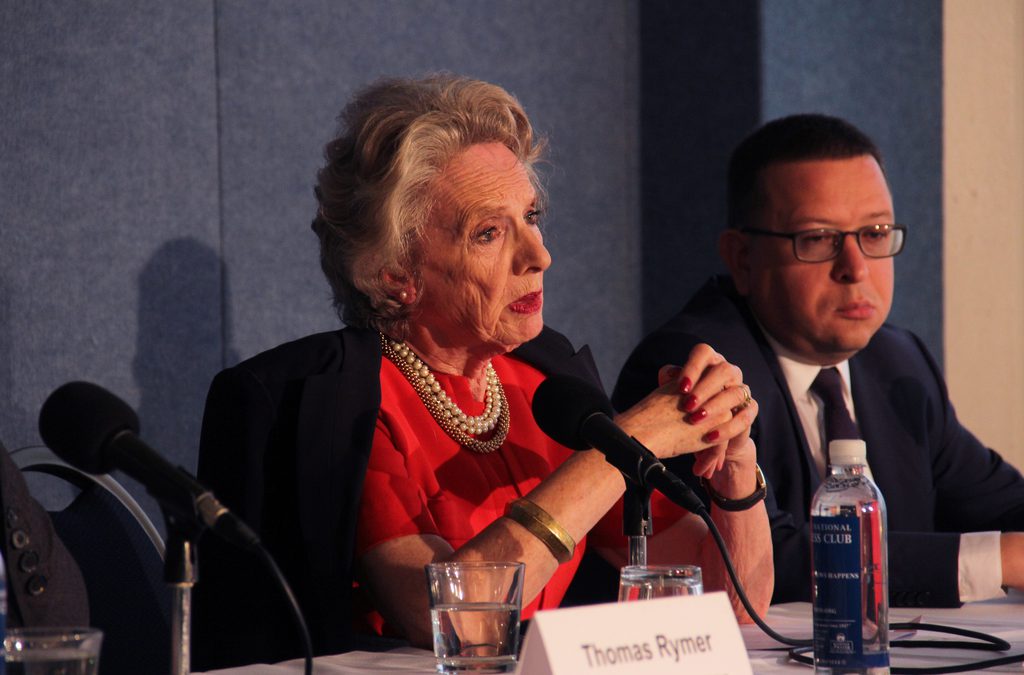WASHINGTON — Worries – real or imagined – about a potentially rigged election may be eased by an international election observation mission focusing on the November General Election in the U.S.
Republican presidential nominee Donald Trump has said publicly that he fears the election will be rigged.
“I’d like to stress the use of the word ‘observe,’” said Audrey Glover, the head of the mission, at a Tuesday news conference, officially opening the mission. “We watch the electoral process without interfering in any way, but we report on what we observe.”
The mission, which is here at the request of the U.S. State Department, is a part of the Organization for Security and Co-operation in Europe’s Office for Democratic Institutions and Human Rights. The OSCE, of which the U.S. is a member state, has sent observers to monitor the U.S. electoral process since 2002.
The organization has 57 members from Europe, Asia and North America, and has observed elections since 1995.
Judith Kelley, a Duke University political science professor who has researched election monitoring, said the role of observers is twofold: to provide credibility to the election and to recommend future improvements to the process.
However, the mission faces potential problems in carrying out its duties, including understaffing and some state laws that don’t readily grant access to international observers. Consequently, Glover said the mission is still deciding where to dispatch its observers.
For this election, the Office of Democratic Institutions and Human Rights asked for 100 long-term and 400 short-term observers to come onboard. Only 26 long-term and an unspecified number of short-term observers will be in the U.S., Glover said.
Long-term observers arrive weeks in advance of the election and get a better understanding of the area where they’re stationed. Short-term observers arrive days before the election and focus on polling stations.
Kelley said the low number of observers is surprising. In 2012, when her book on election monitoring came out, 44 long-term observers came to the U.S.
“I would start to question whether it undermines their ability to carry out the mission with any credibility,” she said. “It’s a big country.”
Despite obstacles, the mission’s presence may be welcome after the integrity of this year’s election was called into question by Trump, who said Sunday at a Pennsylvania rally, “Watch your polling booths, because I hear too many stories about Pennsylvania, certain areas.”
When asked about any alleged vote rigging, Glover said, “We’re not policemen” and it’s not the responsibility of the mission to investigate, but that of the country.
A September report from the Electoral Integrity Project, which evaluates the quality of elections worldwide, ranked the U.S. as the worst among Western democracies. Public mistrust of this election stems from issues related to voter identification, cybersecurity and campaign finance, the report said.
Because of the mistrust, the role of the Organization for Security and Co-operation in Europe in this cycle’s election could be more important than ever, Kelley said.
“I don’t recall heading into an election in the type of climate we have now where those sorts of allegations are being made even before anything has happened,” she said.


